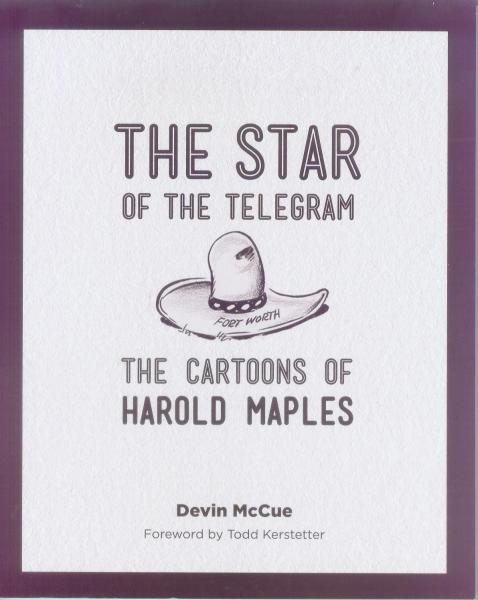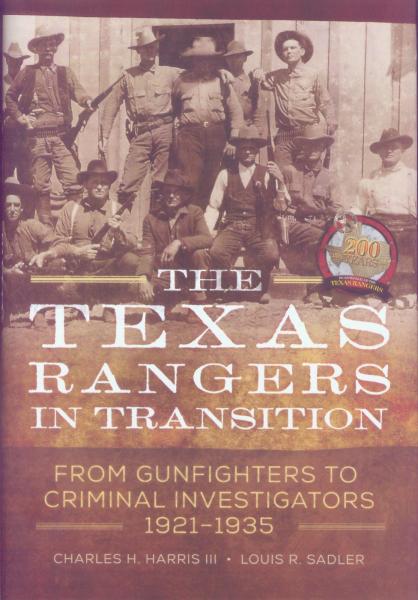
"During this period the Rangers underwent the transition–often painful–from hard-ridin’ straight-shootin’ gunfighters to criminal investigators."
When I started my journalism career at the Fort Worth Star-Telegram, I had the pleasure of working with editorial and sports cartoonist Harold Maples. So I’m delighted to see that TCU Press has brought out a collection of his cartoons, The Star of the Telegram: The Cartoons of Harold Maples, selected and organized by Devin McCue ($24.95 paperback).
 I still cherish a cartoon Harold presented to me when I left the Star-Telegram to become editor of the Bryan-College Station Eagle. He had A&M’s Ol’ Sarge welcoming me with open arms back to Aggieland.
I still cherish a cartoon Harold presented to me when I left the Star-Telegram to become editor of the Bryan-College Station Eagle. He had A&M’s Ol’ Sarge welcoming me with open arms back to Aggieland.
While working on his senior honors thesis in history at TCU, McCue discovered the TCU library’s extensive Harold Maples Collection and began delving into the cartoons and the history and issues they represented.
From more than seven thousand illustrations, McCue selected about 150 cartoons grouped into six broad categories–Cold War, Fort Worth, Politics, Sports, Vietnam, and Uncle Sam. Each cartoon gets its own page in the book, with a few lines by McCue providing context.
Maples, who grew up in Fluvanna in West Texas, was the Star-Telegram’s morning edition cartoonist for twenty-seven years, beginning in the 1950s. He died in 1981.
Texas Rangers: The University of Oklahoma Press has issued The Texas Rangers in Transition: From Gunfighters to Criminal Investigators, 1921-1935 by Charles H. Harris III and Louis R. Sadler ($34.95 hardcover, 656 pages).
The new title is a sequel to the two authors’ earlier work, The Texas Rangers and the Mexican Revolution: The Bloodiest Decade, 1910-1920.

Now they track the Rangers during oil boom days and Prohibition, with a rash of bank robberies, the growth of the Ku Klux Klan, in-state political upheaval, and numerous other challenges.
“Texas in the years 1921-35 was a violent place, figuratively awash in booze and oil,” the authors write. “These years constitute a significant but relatively neglected period in the history of the Texas State Ranger Force. During this period the Rangers underwent the transition–often painful–from hard-ridin’ straight-shootin’ gunfighters to criminal investigators, mirroring Texas’s transition from an essentially rural to a rapidly urbanizing state.”
One of the themes in the book, the authors say, is racism.
“Virtually all the white men we deal with in the following pages were racists,” they note in the introduction, “some less than others.”
Frank Hamer figures prominently into the story, as does “Lone Wolf” Gonzaullas.
If you’re into Texas Rangers history, this one offers plenty of action and insight.
Glenn Dromgoole’s latest book is “Book Guy: One Author’s Adventures in Publishing.” Contact him at g.dromgoole@suddenlink.net.

